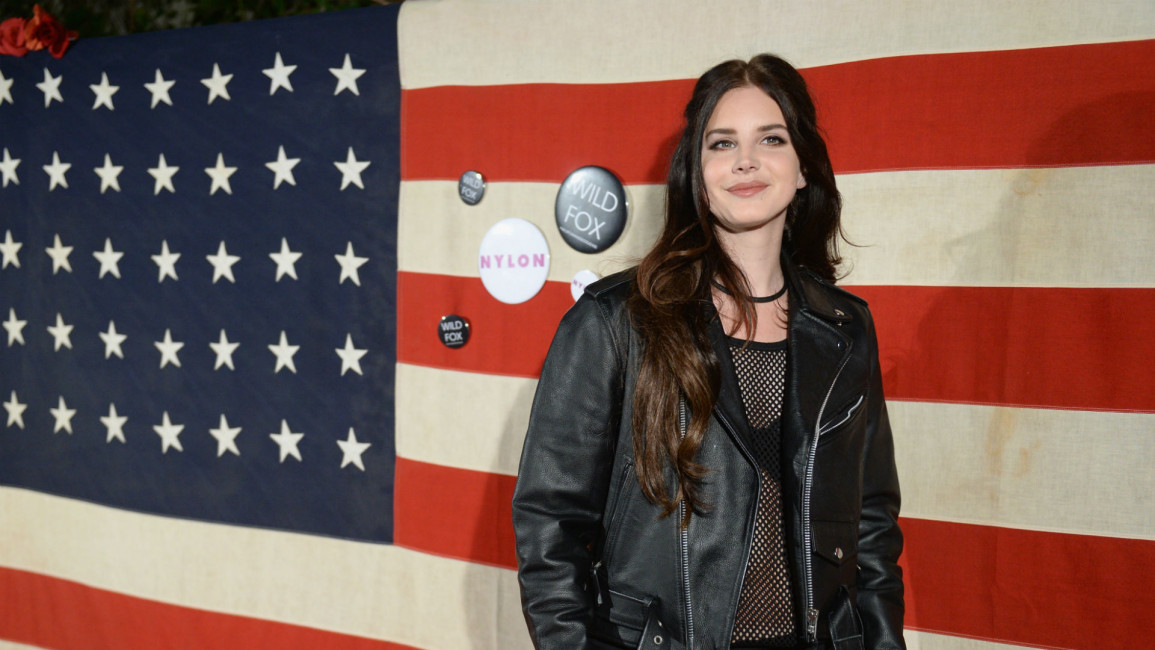BDS turns up the volume as artists boycott Israeli music festival
Israel's Meteor Festival was billed as a Woodstock-like musical event showcasing cutting-edge music. Instead, it found itself centre stage of the international movement to boycott Israel.
Twenty acts, including headliner Lana Del Rey, withdrew at the last minute after responding to calls from the Palestinian-led Boycott, Divestment and Sanctions (BDS) movement not to perform.
Its supporters take inspiration from the campaign used by international activists to end apartheid in South Africa by isolating Israel politically, economically, and culturally.
"The fact that these artists are cancelling is showing just how different the younger generation is viewing Israel," said Diana Buttu, a Palestinian analyst who supports the movement known as BDS.
BDS organisers claimed success, saying it reflects growing opposition to Israeli government policies among international millennials.
The campaign, founded in 2005, calls for boycotts, divestment and sanctions against Israeli businesses, cultural institutions and universities.
 |
BDS supporters take inspiration from the campaign used by international activists to end apartheid in South Africa by isolating Israel |  |
A growing list of performers, including Israeli-American actress Natalie Portman and singer Lorde, have cancelled appearances in Israel in recent months out of concern over the government's policies.
Del Rey joined that list on 31 August when she announced that she was withdrawing from the Meteor Festival until she could perform for both Israeli and Palestinian audiences.
Other no-shows included of Montreal, a popular indie band that previously performed in Israel.
"Now is not the time for escapism and celebrations," it said on Facebook. "Now is the time for activism and protests against Israeli apartheid, Israeli occupation of the West Bank and the human rights atrocities being carried out every day in Gaza by Israeli forces."
Twitter Post
|
Omar Barghouti, co-founder of the BDS movement, said the campaign against Meteor had succeeded "beyond expectations". He estimated that roughly 40 percent of international artists pulled out.
He said fans of such bands are a natural audience for the movement's message.
"The common denominator is younger fans that are more progressive and liberal," he said.
The BDS movement seeks to end Israel's illegal occupation of Palestinian land captured in the 1967 Middle East war and discrimination against Palestinian citizens of Israel.
It also calls for the "right of return" for Palestinian refugees. and their descendants. to homes which they or their ancestors were forcibly displaced from during the creation of the Israeli state.
Waning support for Israel?
Opinion polls indicate that American millennials tend to be more liberal than their parents on issues ranging from race to same-sex marriage to immigration.
Israeli Prime Minister Binyamin Netanyahu's close ties with President Donald Trump, his alliance with conservative evangelical Christians and a nationalistic agenda that includes a Jewish nation state law side-lining Palestinians all risk alienating younger liberals.
A survey by the Pew Research Center earlier this year found that 32 percent of Americans under-the-age of 30 sympathise more with Israel, compared with 23 percent who sympathised more with the Palestinians.
The poll found that older Americans are much more sympathetic to Israel.
Israel's ministry of strategic affairs spends millions of dollars fighting BDS while Israel's supporters also run outreach programmes on US college campuses to influence opinion.
In 2017, Israel's parliament passed a law barring entry into the country for those supporting a boycott of Israel.
The legislation denies permits and residency visas to anyone who has publicly called for a boycott of the country.
In January, Israel named 20 foreign NGOs whose representatives are barred from entering the country, saying that they support a boycott of Israel over its occupation of the Palestinian territories.
BDS now has its sights on a more high-profile target - the Eurovision Song Contest. Israel is expected to host the hugely popular event next year, and last week dozens of European artists - led by former Pink Floyd frontman Roger Waters - signed a letter calling for the contest to be moved to another country.
"If Eurovision is hosted by Israel, and this is still quite uncertain, it would art-wash Israel's regime of occupation and apartheid," Barghouti said.




